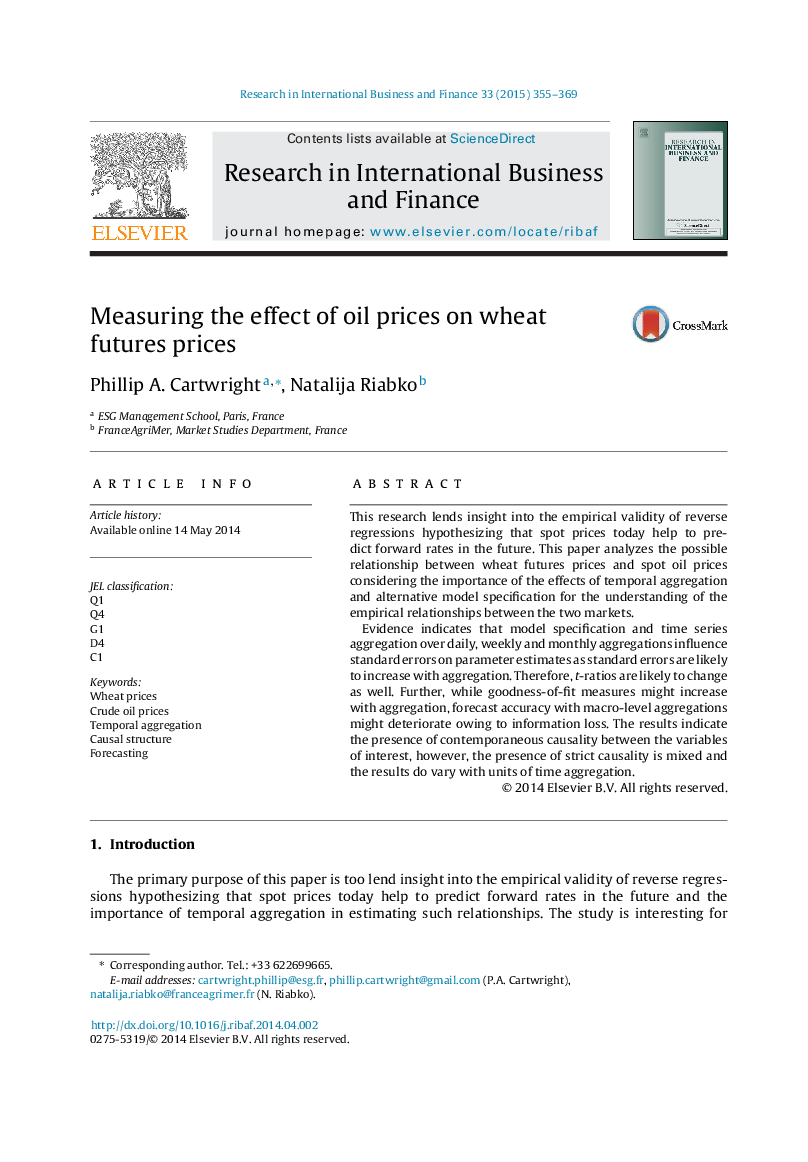| Article ID | Journal | Published Year | Pages | File Type |
|---|---|---|---|---|
| 1003566 | Research in International Business and Finance | 2015 | 15 Pages |
•Wheat futures and oil prices are correlated, but not necessarily causally related.•Correlation between market prices appears unstable.•Temporal aggregation does impact the relationships between the market variables.•Temporal aggregation impacts estimates, standard errors and forecasting accuracy.•Reverse regressions are useful for understanding prices of futures contracts.
This research lends insight into the empirical validity of reverse regressions hypothesizing that spot prices today help to predict forward rates in the future. This paper analyzes the possible relationship between wheat futures prices and spot oil prices considering the importance of the effects of temporal aggregation and alternative model specification for the understanding of the empirical relationships between the two markets.Evidence indicates that model specification and time series aggregation over daily, weekly and monthly aggregations influence standard errors on parameter estimates as standard errors are likely to increase with aggregation. Therefore, t-ratios are likely to change as well. Further, while goodness-of-fit measures might increase with aggregation, forecast accuracy with macro-level aggregations might deteriorate owing to information loss. The results indicate the presence of contemporaneous causality between the variables of interest, however, the presence of strict causality is mixed and the results do vary with units of time aggregation.
Graphical abstractFigure optionsDownload full-size imageDownload as PowerPoint slide
